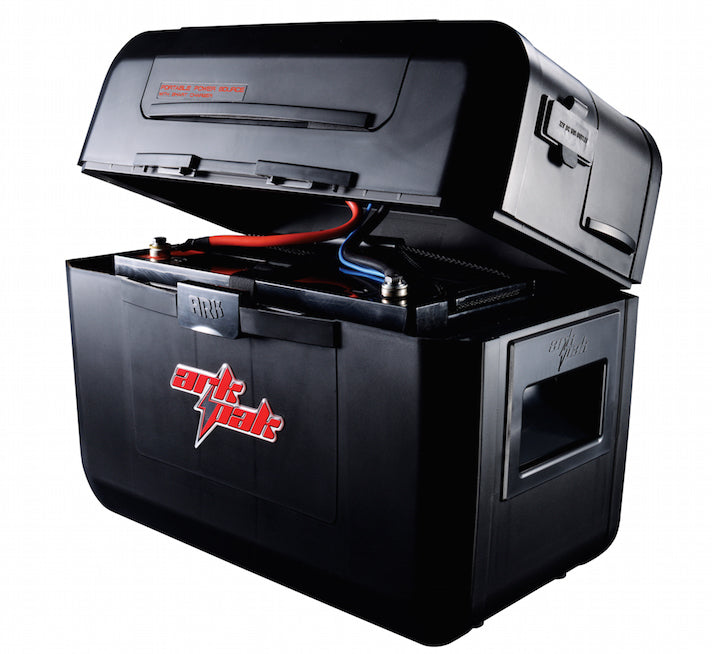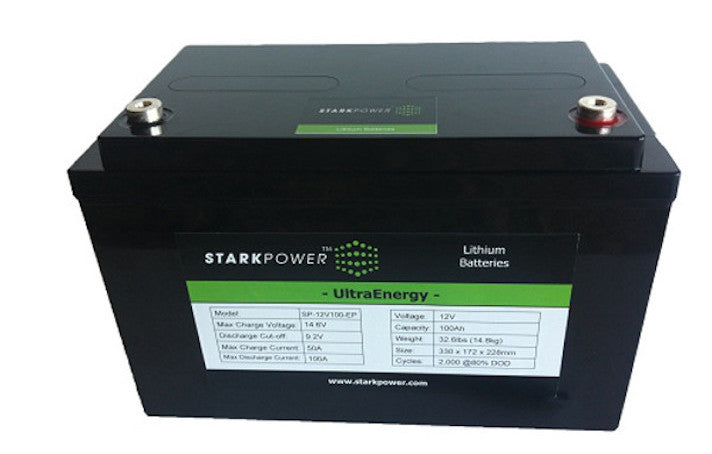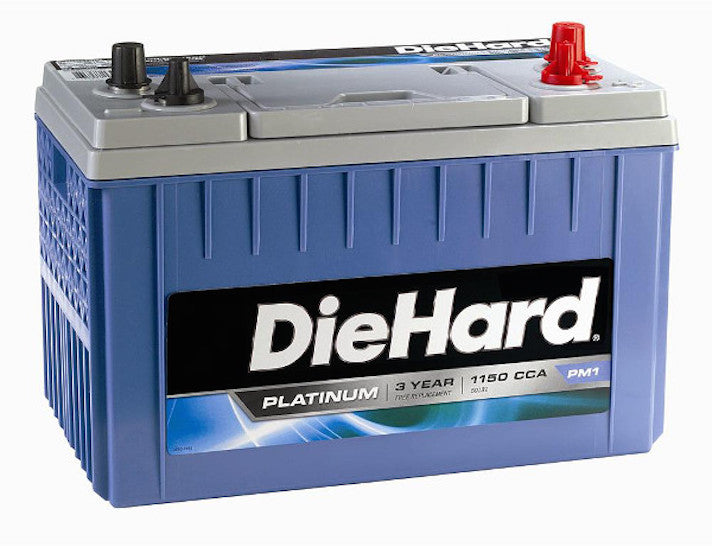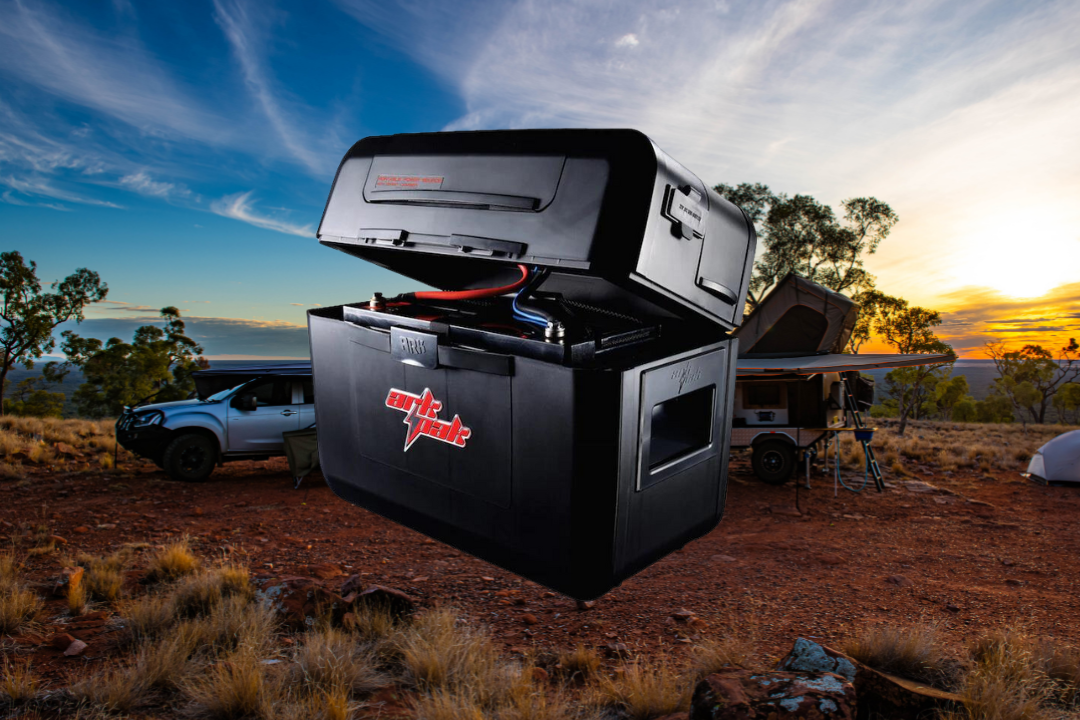
The new ArkPak 730 doesn’t limit users to just lead acid batteries; it’s compatible with LiFePO4 deep cycle batteries as well. Comparing the two batteries is like comparing a high end race car to your everyday commuter roadster. The LiFePO4 is superior to lead acid batteries in nearly every way imaginable.

However, all this superiority comes at a high price. Depending on the type of batteries you compare, a LiFePO4 battery can cost three to five times more than a premium deep-cycle lead acid battery, and as much as 10 times more than an inexpensive deep-cycle lead acid.

Yet this up-front cost comparison is only half the story. LiFePO4 batteries last longer, which means it's worth comparing the lifetime cost of these types of batteries to lead-acid types. Here's how the comparison stacks up.
How To Determine Battery Lifetime Cost
To determine the real lifetime cost, the best method is to estimate the number of charge and discharge cycles you're going to put your battery through on a yearly basis. Then, multiply the total number of cycles over the expected lifetime of each type of battery:
- A premium deep cycle lead-acid battery should last 3-5 years and/or 600-1,000 cycles
- An inexpensive deep cycle lead-acid battery should last 2-3 years and/or 300-400 cycles
- A quality LiFePO4 battery should last 5-10 years and/or 5,000+ cycles (some batteries last much longer than 5,000 cycles, depending on how they're used)
NOTE: These are estimated figures based on data from a variety of sources. They all assume 50% depth of discharge.
You then compare the total number of cycles to the estimated cycle life and lifespan, and see what the limiting factor is. Then you take your up-front cost, divide by the number of years or number of cycles (whatever the limit will be), and that's your effective cost per year or cost per cycle.
Calculation Example - An Occasional User
If, for example, you're only going to use your battery a few times a year (let's say 25), you'll probably never use up a battery's maximum cycle life before the battery becomes too old to be useful. Therefore, you just take your up-front cost, divide by the number of years of expected life, and you end up with a good comparison:
| Battery | Up-Front Cost (est.) | Expected Life | Cost/Year (low est.) | Cost/Year (high est.) |
| Inexpensive Deep Cycle Lead-Acid | $150 | 2-3 years | $50 | $75 |
| Premium Deep Cycle Lead-Acid | $300 | 3-5 years | $60 | $100 |
| LiFePO4 | $1200 | 5-10 years | $120 | $240 |
As you can see, if you're the type of person who will seldomly cycles your battery, investing in a LiFePO4 might not make sense (at least from a purely financial perspective).
NOTE: There are plenty of non-financial reasons to buy an LiFePO4 battery, even if the expense is higher. LiFePO4 batteries can discharge more power more quickly without heating up and "losing" capacity the way that lead-acid batteries can. They're also lighter, and in some cases, have more total capacity. This analysis is just intended to help you consider the economics of a LiFePO4 battery, not the total overall value.
Another Example - A Heavy User
Let's say that instead of being a seldom user, you're charging and discharging (or cycling) your battery twice a day. The math in this situation is considerably different, as you'll run out of cycles long before your batteries become too old to be useful.
| Battery | Up-Front Cost (est.) | Expected Life | Cost/Cycle (low est.) | Cost/Cycle (high est.) |
| Inexpensive Deep Cycle Lead-Acid | $150 | 300 - 400 cycles | $0.38 | $0.50 |
| Premium Deep Cycle Lead-Acid | $300 | 600 - 1,000 cycles | $0.30 | $0.50 |
| LiFePO4 | $1200 | 5,000+ cycles | $0.24 | N/A |
As you can see, on a per cycle basis, LiFePO4 batteries are very affordable. In fact, if you're using the battery daily, a LiFePO4 battery will save you a sizable amount of money.
Conclusion
While there's more to choosing a battery for your ArkPak than just looking at costs (check out our article here for more info), we hope this cost analysis will help you choose the right battery for your specific situation.
The great news is that the new ArkPak 730 is compatible with both LiFeP04 and lead-acid batteries. If you choose the 730, you'll have the option of upgrading or downgrading your battery down the road. If LiFePO4 battery prices continue to fall, there may be a day in the not-so-distant future when lead-acid batteries are obsolete. If that day comes, you'll be just fine with the 730.

